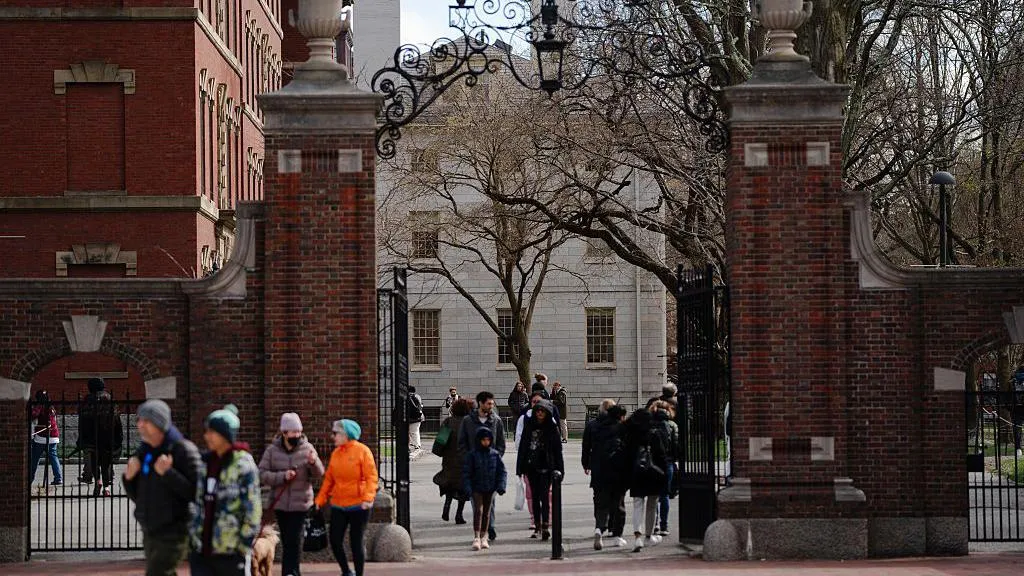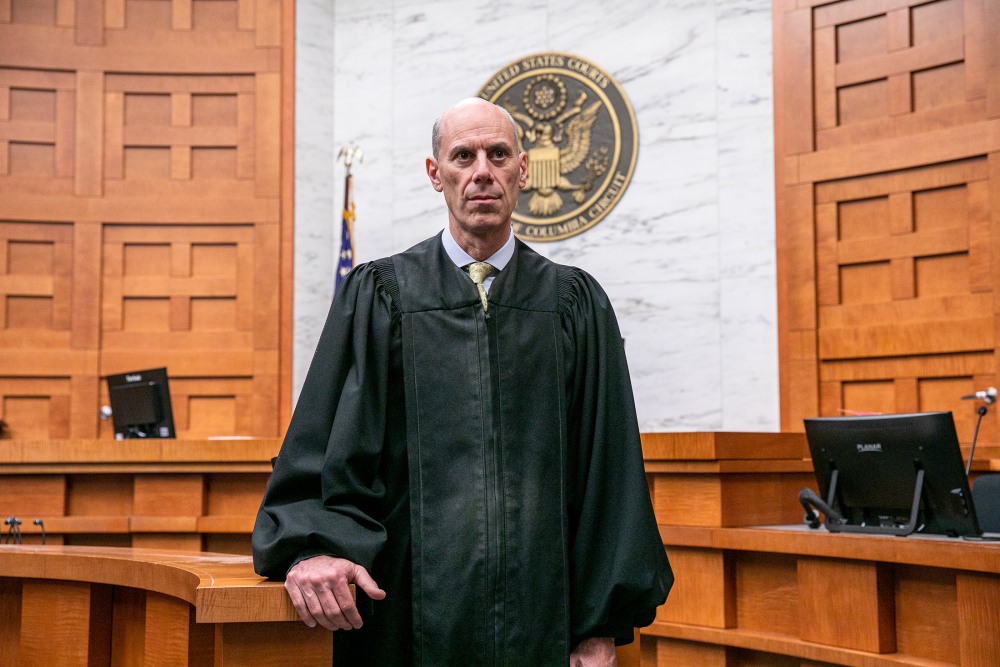21
Action [Public] / Re: The Dune Worm, Junk Science, and Messing With The Meds
« Last post by Firestarter on April 19, 2025, 05:32:09 AM »https://www.msnbc.com/opinion/msnbc-opinion/rfk-autism-cdc-report-jobs-rcna201638
I’m autistic, and I work. And I made sure to let RFK Jr. know it.
“These are kids who will never pay taxes,” HHS Secretary Robert F. Kennedy Jr. said of autistic children Wednesday. "They’ll never hold a job.”
April 18, 2025, 10:44 AM PDT
By Eric Garcia, MSNBC Columnist
When Health and Human Services Secretary Robert F. Kennedy Jr. took the lectern at the Hubert H. Humphrey Building on Wednesday to fearmonger about a supposed autism epidemic, he said many dehumanizing things about autistic people including, “These are kids who will never pay taxes, they’ll never hold a job.” I had made sure to park myself right in front of Kennedy for the news conference, and when he and his team called on me, I mentioned that I am autistic.
I wanted to show America’s most vocal proponent of the lie that there’s a link between vaccines and autism that my autism is not a tragedy. Of course there are autistic people, including nonspeaking autistic people and ones with intellectual disabilities, who require significant support. Even so, they don’t deserve Kennedy’s awful rhetoric that describes them not as people but as burdens.
Kennedy’s blanket characterization of autistic people not working and paying taxes is obviously false. However, the number of autistic people without work remains painfully high. Some studies show it could be around 38.5%. This does not factor in those who are paid below minimum wage.
The irony is that President Donald Trump’s administration has slashed grants to recruit autistic people into STEM jobs. Trump also grotesquely blamed diversity, equity and inclusion programs for the plane crash over the Potomac in the first month of his presidency and specifically cited a program by the Federal Aviation Administration to hire people with intellectual disabilities. In short, the Trump administration seems focused on actively reducing the number of opportunities for disabled people, including those who are autistic.
Kennedy, who’s been assigned by President Donald Trump to find the cause of autism, was speaking to the media on Wednesday about a Centers for Disease Control and Prevention's report on the increased numbers in autism diagnoses. But his insistence that the increase means there must be an environmental toxin responsible suggests he hadn’t read the report. I had read it and knew that the report says, “Differences in prevalence over time and across sites can reflect differing practices in ASD evaluation and identification and availability and requirements that affect accessibility of services.”
The increased number of diagnoses is also a sign that the racial diagnosis gap has closed significantly and that clinicians, educators and parents finally recognize certain traits in their kids as autism spectrum disorder and not behavior disorders. We should credit the Individuals with Disabilities Education Act (IDEA). Schools being required to report the number of autistic students they serve directly led to the increase in autism diagnoses. There is no epidemic. The increase in reported autism numbers is a sign that government can work.
Despite the significant challenges I’ve faced as an autistic person, I’ve accomplished much in the workforce. I am incredibly fortunate. My mom read an ad in a Wisconsin newspaper before I entered kindergarten about kids getting screenings for disability. Had she not read that, my family may never have begun the diagnosis process. Similarly, had I not had professors and professional mentors who’d had experiences with autistic family members, they may not have have been as willing to give me the accommodations I needed.
Yes, I worked incredibly hard during those years. But I also was able to work as hard as I worked because of support from my mentors. Moreover, I was able to perform well in school settings and at work because of deliberate policy decisions by public servants.
Kennedy should know this. Not only did his late uncle Sen. Ted Kennedy, D-Mass., co-sponsor the IDEA in 1990; he co-sponsored the Americans with Disabilities Act that same year. I was born in 1990. That means I have never known a world where I did not have codified rights. Those laws gave me access to individualized education plans, legal protection from discrimination and the legal right to have reasonable support in my job. Even now, I am acutely aware of my limitations. For example, I took a Lyft to the Humphrey Building on Wednesday because my version of autism makes me experience sensory overload when I drive (though many autistic people do drive).
Plenty of other autistic people have the same story as I do. We needed our government to believe in the idea that we are worth their effort. And there remain some federal programs that reflect that belief. The Job Accommodation Network, which the Department of Labor runs, offers ways to accommodate autistic employees. The U.S. Air Force Materiel Command also leads an autism-at-work program. The federal government’s funding of vocational rehabilitation programs is a crucial lifeline to helping autistic people find work. Autistic people often face risks if we disclose our autism. That makes these tools more vital.
Kennedy assiduously dodged my question related to statistics that show people of color are now receiving diagnoses when they did not in the past, and after that I felt my hands start trembling. Part of it was the nerves I felt after confronting him for saying such grotesque things about this community I love, but part of it was my fear that the disparaging attacks on autistic people will get much, much worse.
I’m autistic, and I work. And I made sure to let RFK Jr. know it.
“These are kids who will never pay taxes,” HHS Secretary Robert F. Kennedy Jr. said of autistic children Wednesday. "They’ll never hold a job.”
April 18, 2025, 10:44 AM PDT
By Eric Garcia, MSNBC Columnist
When Health and Human Services Secretary Robert F. Kennedy Jr. took the lectern at the Hubert H. Humphrey Building on Wednesday to fearmonger about a supposed autism epidemic, he said many dehumanizing things about autistic people including, “These are kids who will never pay taxes, they’ll never hold a job.” I had made sure to park myself right in front of Kennedy for the news conference, and when he and his team called on me, I mentioned that I am autistic.
I wanted to show America’s most vocal proponent of the lie that there’s a link between vaccines and autism that my autism is not a tragedy. Of course there are autistic people, including nonspeaking autistic people and ones with intellectual disabilities, who require significant support. Even so, they don’t deserve Kennedy’s awful rhetoric that describes them not as people but as burdens.
Kennedy’s blanket characterization of autistic people not working and paying taxes is obviously false. However, the number of autistic people without work remains painfully high. Some studies show it could be around 38.5%. This does not factor in those who are paid below minimum wage.
The irony is that President Donald Trump’s administration has slashed grants to recruit autistic people into STEM jobs. Trump also grotesquely blamed diversity, equity and inclusion programs for the plane crash over the Potomac in the first month of his presidency and specifically cited a program by the Federal Aviation Administration to hire people with intellectual disabilities. In short, the Trump administration seems focused on actively reducing the number of opportunities for disabled people, including those who are autistic.
Kennedy, who’s been assigned by President Donald Trump to find the cause of autism, was speaking to the media on Wednesday about a Centers for Disease Control and Prevention's report on the increased numbers in autism diagnoses. But his insistence that the increase means there must be an environmental toxin responsible suggests he hadn’t read the report. I had read it and knew that the report says, “Differences in prevalence over time and across sites can reflect differing practices in ASD evaluation and identification and availability and requirements that affect accessibility of services.”
The increased number of diagnoses is also a sign that the racial diagnosis gap has closed significantly and that clinicians, educators and parents finally recognize certain traits in their kids as autism spectrum disorder and not behavior disorders. We should credit the Individuals with Disabilities Education Act (IDEA). Schools being required to report the number of autistic students they serve directly led to the increase in autism diagnoses. There is no epidemic. The increase in reported autism numbers is a sign that government can work.
Despite the significant challenges I’ve faced as an autistic person, I’ve accomplished much in the workforce. I am incredibly fortunate. My mom read an ad in a Wisconsin newspaper before I entered kindergarten about kids getting screenings for disability. Had she not read that, my family may never have begun the diagnosis process. Similarly, had I not had professors and professional mentors who’d had experiences with autistic family members, they may not have have been as willing to give me the accommodations I needed.
Yes, I worked incredibly hard during those years. But I also was able to work as hard as I worked because of support from my mentors. Moreover, I was able to perform well in school settings and at work because of deliberate policy decisions by public servants.
Kennedy should know this. Not only did his late uncle Sen. Ted Kennedy, D-Mass., co-sponsor the IDEA in 1990; he co-sponsored the Americans with Disabilities Act that same year. I was born in 1990. That means I have never known a world where I did not have codified rights. Those laws gave me access to individualized education plans, legal protection from discrimination and the legal right to have reasonable support in my job. Even now, I am acutely aware of my limitations. For example, I took a Lyft to the Humphrey Building on Wednesday because my version of autism makes me experience sensory overload when I drive (though many autistic people do drive).
Plenty of other autistic people have the same story as I do. We needed our government to believe in the idea that we are worth their effort. And there remain some federal programs that reflect that belief. The Job Accommodation Network, which the Department of Labor runs, offers ways to accommodate autistic employees. The U.S. Air Force Materiel Command also leads an autism-at-work program. The federal government’s funding of vocational rehabilitation programs is a crucial lifeline to helping autistic people find work. Autistic people often face risks if we disclose our autism. That makes these tools more vital.
Kennedy assiduously dodged my question related to statistics that show people of color are now receiving diagnoses when they did not in the past, and after that I felt my hands start trembling. Part of it was the nerves I felt after confronting him for saying such grotesque things about this community I love, but part of it was my fear that the disparaging attacks on autistic people will get much, much worse.



 Recent Posts
Recent Posts


